Lifestyle
You’re an American in another land? Prepare to talk about the why and how of Trump 2.0
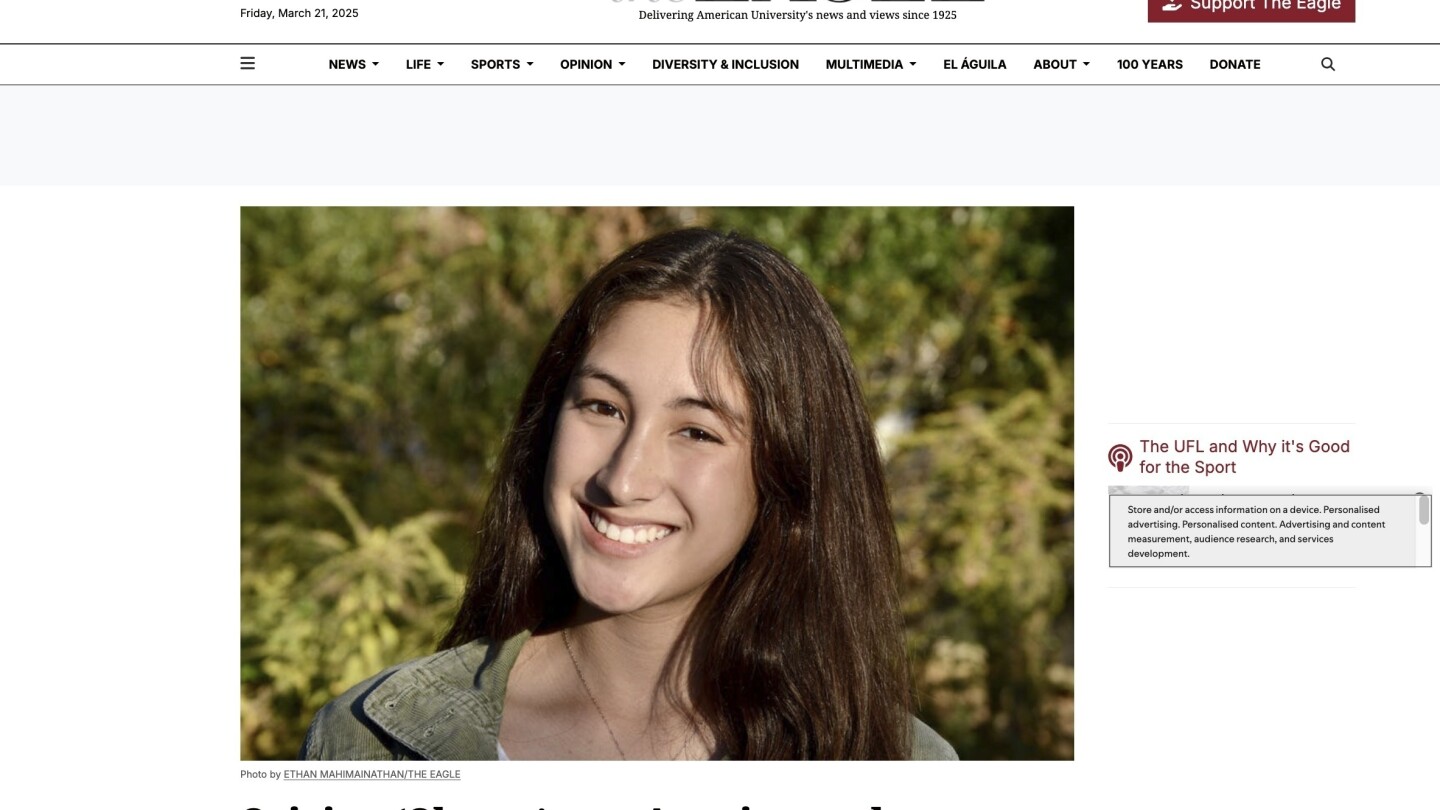
LONDON (AP) — The urgent care doctor cocked an eyebrow at Mari Santos and her American accent.
It was four days after President Donald Trump’s inauguration, and Santos was a student with a stomach bug in the first weeks of an overseas semester in Glasgow, Scotland. A doctor arrived to see her after a six-hour wait. But before asking what ailed her, he said this: “Interesting time to be an American, I suppose.”
Until then, Santos, 20, had not been thinking about Trump — just her 104-degree fever and concern about being sick while abroad. But the president and his triumphant return to the White House, she says, were on her physician’s mind, giving the American University student an instant education in geopolitics. The lesson, as she sees it: “There’s a kind of chilling in the air.”
“I knew that maybe that Europe is not in general big fan of American politics,” Santos said, “but I didn’t expect it to be such like a personal thing.”
The United States and its center of gravity occupy a unique space in the international conversation. People the world over talk about America — its policies, its proclivities, its place in the world. They have for generations. They did it during the Iraq War. They did it during the first Trump administration.
And two months into Trump 2.0, at least in many European and English-speaking countries, it’s happening again — sometimes even more intensely.
People from other countries have questions about Trump — and trust
Answering for America under the new Trump administration is becoming a delicate experience for some of the estimated 5 million U.S. citizens living in other countries.
From Santos in Scotland to others in New Zealand, France, Germany, the United Kingdom and Canada, Republican and Democratic expats alike told The Associated Press in recent weeks that the moment they are revealed to be American changes virtually every conversation to, in essence, “What about Trump?”
At its root, this change is about whom to trust among those thought until now to be allies, in world politics and in life. Trump, known for insisting the truth is what he says it is, is now the voice of America — not VOA, the independent news service that told the nation’s story for eight decades until he silenced it March 16. The president himself has set an example in which trust is almost beside the point.
“Who do I trust? I mean, who do you trust? Do you trust anybody?” he said during an interview last month with The Spectator, when asked how much he trusts people like Jeff Bezos, owner of The Washington Post.
What comes after the revelation that someone is American, U.S. citizens overseas say, are awkward questions, pauses and euphemisms — but almost always a reference to America under Trump in 2025.
“Before this year, the typical follow-up would be asking where exactly I’m from and what brought me to France,” said Anthony Mucia, 31, a Nebraska native who lives in Toulouse, France and has been overseas for six years. “Twice now, the first thing someone asked me was, ‘Are you glad to be in France now?’” He also gets looks that he interprets as “a bit of ‘shock’ or ‘uneasiness.’ Almost like it automatically turned into an embarrassing topic.”
What’s bending these interactions, expats say, is Trump’s flurry of orders and statements that have upended 80 years of international order and spooked markets.
He’s talked about how the U.S. will “one way or the other” capture Greenland from Denmark, “take back” Panama and make Canada the 51st U.S. state. He wants to empty and develop war-battered Gaza, and has cut off U.S. aid to the world’s neediest people. He’s falsely blamed President Volodymyr Zelenskyy for starting the Russian invasion and ended a White House meeting with Zelenskyy after berating the Ukrainian leader. Trump has let Europe’s leaders know that the U.S. is not a staunch ally in facing the Russian threat. And he’s set off tariff wars with China, Canada and Mexico.
Not smoothing the American experience overseas is the backlash developing against Trump’s association with Elon Musk and Tesla, which has fueled growing boycott movements. People are joining Facebook groups to exchange ideas about how to avoid U.S. products. Feelings are especially strong across the Nordic region — particularly Denmark, where Trump’s moves have set “the Danish Viking blood boiling,” one man told The Associated Press.
So far, the interactions are less hostile than wary, Americans overseas say. But anti-U.S. sentiment is emerging as a concern on the cusp of what’s expected to be a record-setting international travel season for Americans.
Prepare to talk about ‘what’s going on’
Jake Lamb, 32, moved from Colorado to Auckland, New Zealand in 2023. He said says he’s “noticed a significant shift in the types and frequency of questions I’m asked” over the past year. Kiwis remain friendly about it, but they’ve been saying they might have to “hide” Lamb or vouch that he’s “one of the good ones” if Trump escalates conflicts with former allies. He thinks that the good humor belies wariness.
“I am concerned that it may become difficult for some not to hold individual Americans responsible,” Lamb, a volunteer coordinator for a charity and who voted for Democrat Kamala Harris, said in an email.
Elizabeth Van Horne, 33, has lived in France since 2013. For years, she said, people would ask “why on Earth I’d come to live in France if I could live in the U.S: ‘It’s so beautiful, there’s so much potential, so much opportunity, like living in a TV show.’”
“Now, that romanticized image has completely changed,” Van Horne, a Democrat, said in an email. Early in March, a postal worker told her it’s sad to watch.
“For me,” she said, “that conversation summed it up: ‘Je suis desole pour vous’ — ‘I’m sorry for you.’”
For Trump supporters abroad, it can be complicated
Georganne Burke, a Syracuse, N.Y., native living in Ottawa, supported Trump in all three elections and is the chairwoman of Republicans Overseas in Canada. She’s a dual citizen, which makes her something like the Peace Bridge that links the two nations in Buffalo, N.Y.
Trump’s tariff war, his manner and his provocative talk about how Canada “only works” as the 51st U.S. state “has everybody’s hair on fire,” she said in an interview. Burke, 77, says she’s received threats and had a tense talk with an anti-Trump co-worker. People ask her, “How could anyone vote for him?”
An invitation to speak about trade near the end of March, she says, came with the organizer saying that he was “pretty sure that most of the people will be polite.” Burke accepted the invitation.
She says anti-American sentiment was bad during the Iraq war under President George W. Bush in 2003. But now it’s different.
“Then, it was kind of more on the politicians,” as the targets of public ire, Burke said in a recent interview. “Now, it’s much more personal.”
Burke’s counterpart in London, Greg Swenson of Republicans Overseas UK, says walking around as an American in another country remains more positive than negative. In interviews with media outlets, he readily acknowledges Trump can be “obnoxious.” But Swenson, 62, is an investment banker, and he says the president and America remain good for business.
Greg Swenson of Republicans Overseas UK, poses for a photograph in London, Thursday, March 20, 2025. (AP Photo/Kin Cheung)
“In the private capital world, which is not affected by day-to-day (market) volatility, there is just a huge amount of optimism,” Swenson said. That means, he says, that investors want to work with U.S. vendors and customers, seeking American “credibility” through “an affiliation with the president.”
As for what people overseas think of Americans right now: A survey of social media, neighbors and others shows plenty are curious and concerned. When an American dad posted on Reddit his worry that his family won’t be welcomed in Ireland, an Irish dad who asked the AP to identify him by his Reddit handle responded this way:
“A lot of people like me are really, really alienated and angry at the US and Americans,” wrote MDMB13. “But the good news is we’re Irish so you’ll never know because (we) bury our feelings in a far-off place and let them fester over decades.” He ended his comment with a smile emoji.
Lifestyle
Queen Elizabeth II’s favorite dog breed race for glory in the UK’s Corgi Derby

LONDON (AP) — Some of the fastest canines on four very short legs have raced for glory in Scotland’s annual Corgi Derby.
The Musselburgh Racecourse Corgi Derby was first held in 2022 to mark Queen Elizabeth II’s 70 years on the throne. The late monarch was a devoted corgi fan who owned almost 30 of the breed over the decades, along with a few dorgis – a corgi-dachshund cross.
Four-year-old Juno beat a 16-strong field of dashing dogs dressed in bright sweaters over the 230-foot (70-meter) race on Saturday at the racecourse outside Edinburgh. She came from behind in the final stretch to beat last year’s winner, Rodney.
The winner and her owners, Alisdair Tew and Fran Brandon, were presented with a trophy and dog treats by tennis coach Judy Murray, mother of Scottish star Andy Murray.
Tew told the BBC that “we trained her for this last year but this year we just resorted to just letting her chasing things, particularly seagulls” on Edinburgh’s Portobello Beach.
“Juno is always ready for treats -– that is probably why she won,” he said.
Elizabeth’s love of corgis began in 1933 when her father, King George VI, brought home a Pembroke Welsh corgi they named Dookie
Corgis were often by Elizabeth’s side in the decades before her death in September 2022 — accompanying her on official tours, reportedly sleeping in their own room at Buckingham Palace and occasionally nipping the ankles of visitors or royal family members.
Three corgis even appeared alongside the queen as she climbed into James Bond’s waiting helicopter in the spoof video that opened the 2012 London Olympics.
Lifestyle
Tariffs are likely to make having a baby cost more
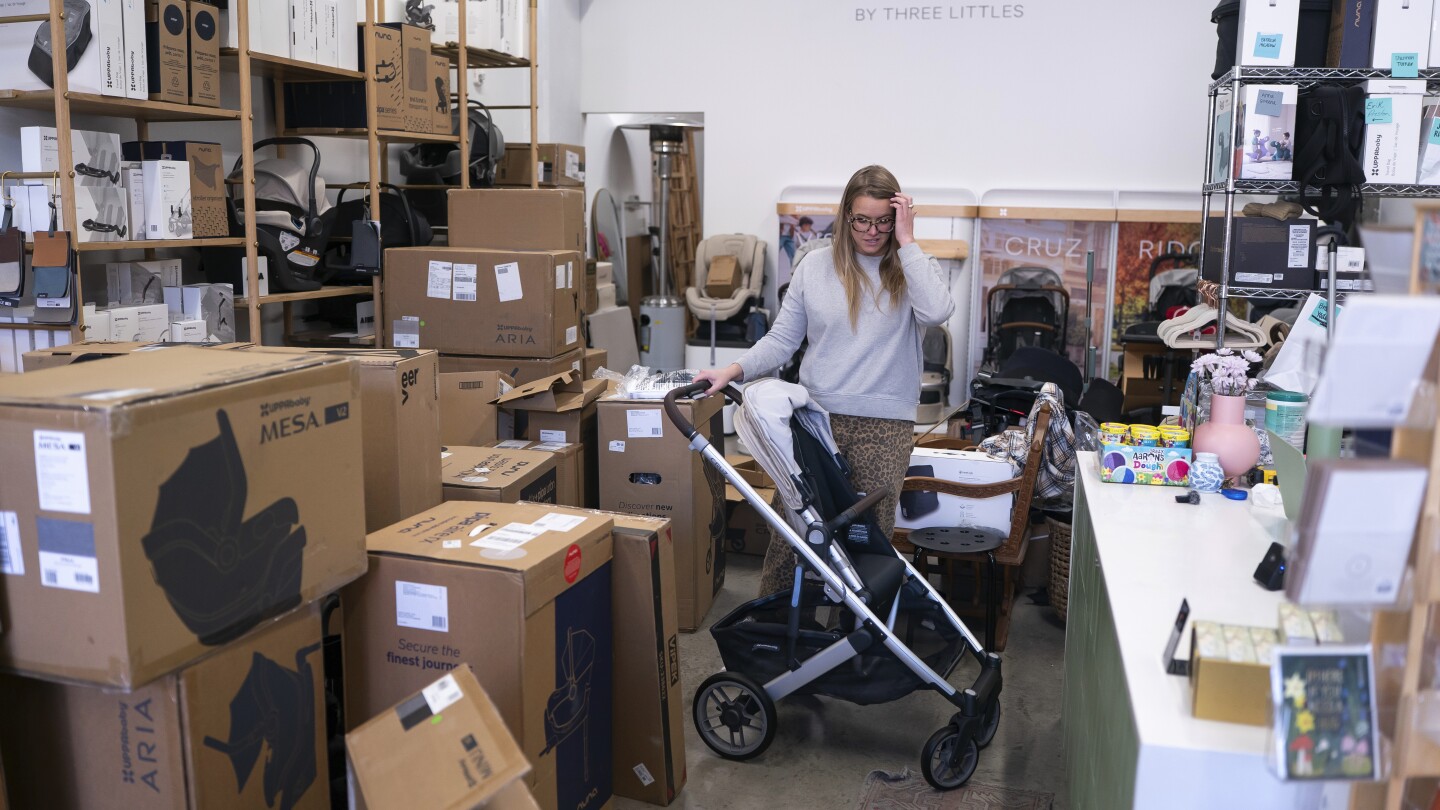
Sam Rutledge and his wife have a baby due in mid-July, so they thought they had a few more months to research and buy the gear they’ll need.
But President Donald Trump’s tariff announcement in early April turned the couple’s slow walk into a sprint. In the past few weeks, they’ve bought two strollers, a car seat, a nursery glider, a crib and a high chair. All of them are made overseas.
“These are all pretty expensive under normal conditions, but when it became clear tariffs were coming we decided to buy them in case they became prohibitively expensive,” said Rutledge, who is a high school physics teacher.
Raising a child in America has never been cheap. In the first year alone, it costs an average of $20,384, according to Baby Center, a parenting website. But tariffs – ranging from 10% for imports from most countries to 145% for imports from China — will make it many times more expensive for new parents.
An estimated 90% of the core baby care products and the parts that go into making baby paraphernalia – from bottles and diaper pails to strollers and car seats – are made in Asia, according to the Juvenile Products Manufacturers Association, a U.S. trade group. The vast majority come from China.
“Overseas manufacturing has been the norm in our industry for decades,” said Lisa Trofe, the association’s executive director.
It wasn’t always this way. When Munchkin Inc. CEO Steven Dunn founded his company in 1991, it made baby bottles in California with tooling from New Jersey. But over the years, the manufacturers he used shut down and the cost of doing business in the U.S. skyrocketed. Now, about 60% of Munchkin’s 500 products, from a $5 sippy cup to a $254 Night Owl Stroller with headlights, are made in China.
In response to the tariffs, Dunn halted orders from China and instituted a hiring freeze at Munchkin’s California headquarters, where 320 people are employed. Dunn expects Munchkin will run out of some products within three months.
“There is no possibility of being able to pass on those tariffs” to customers in the form of price increases, he said.
Dunn said he tried to reduce his dependence on China in recent years, shifting some manufacturing to Vietnam and Mexico. He also spent a year communicating with American manufacturers to see if one could make Munchkin’s new Flow Nipple Shield, which allows a breastfeeding mother to see if her milk is flowing. But most said they couldn’t make the complex silicone product, Dunn said. It’s now made in Vietnam.
“There’s not enough tool makers and manufacturing expertise and automation and skilled labor in the U.S. to make the thousands of products the juvenile industry needs,” Dunn said.
Multiple baby brands and companies contacted by The Associated Press didn’t respond or said they weren’t commenting on the tariffs, including Graco, Chicco, Britax, Nuna, Dorel Juvenile, UppaBaby, Evenflo and Bugaboo.
The Juvenile Products Manufacturers Association said it asked the Trump administration for a tariff exemption, arguing that baby products are essential for children’s well-being. Trump exempted some baby products, including car seats and high chairs, from import taxes during his first administration. But he hasn’t said whether he would consider doing so again.
The Associated Press left a message seeking comment with the White House.
Nurture&, a company that makes a popular nursery glider and other baby furniture, said it’s trying to be transparent about the impact of tariffs.
In a recent email, the company told customers it started lowering prices on some items when the tariffs hit. The company, which was founded in 2020, said it would keep those lower prices in place until April 30, but after that it may not be able to absorb the full cost of the import duties.
“These are large purchases, these are investments, and this is a very sensitive life stage,” Nurture& Chief Merchant Jill Gruys said. “We want people to make the best decision for their budget and their family.”
Elizabeth Mahon, the owner of Three Littles, a baby store in Washington, said she’s worried the tariffs will make essential products too expensive for some families.
Mahon volunteers twice per month at the Department of Motor Vehicles, where she teaches people how to buckle their kids safely into car seats. Some families still must be persuaded to use car seats, she said. Mahon fears higher prices would be another deterrent.
“No one is dying if they can’t buy a toy, but if they don’t have access to car seats, kids will get seriously injured,” she said.
At her own store, Mahon is getting notices that some manufacturers plan to introduce steep price increases in May. She feels lucky she could rent a storage facility and build up inventory ahead of the tariffs. For many small businesses, she said, the extra costs are “a death sentence.”
At The Little Seedling baby shop in Ann Arbor, Michigan, owner Molly Ging said she would normally be putting in Christmas orders at this time of year. Instead, she’s sorting through price increase notices from many of the vendors she works with.
“It’s a lot to manage, and I just have no idea how it’s going to play out,” she said.
Business is brisk right now, with customers hoping to beat tariff-related price increases. But Ging worries about her 13 employees – all moms who bring their kids to work – and about whether she can maintain enough inventory to meet future demand.
“Babies don’t stop being born because there’s tariffs,” she said.
Lifestyle
Famed Sherpa guide will attempt to climb Mount Everest for a 31st time and break his own record
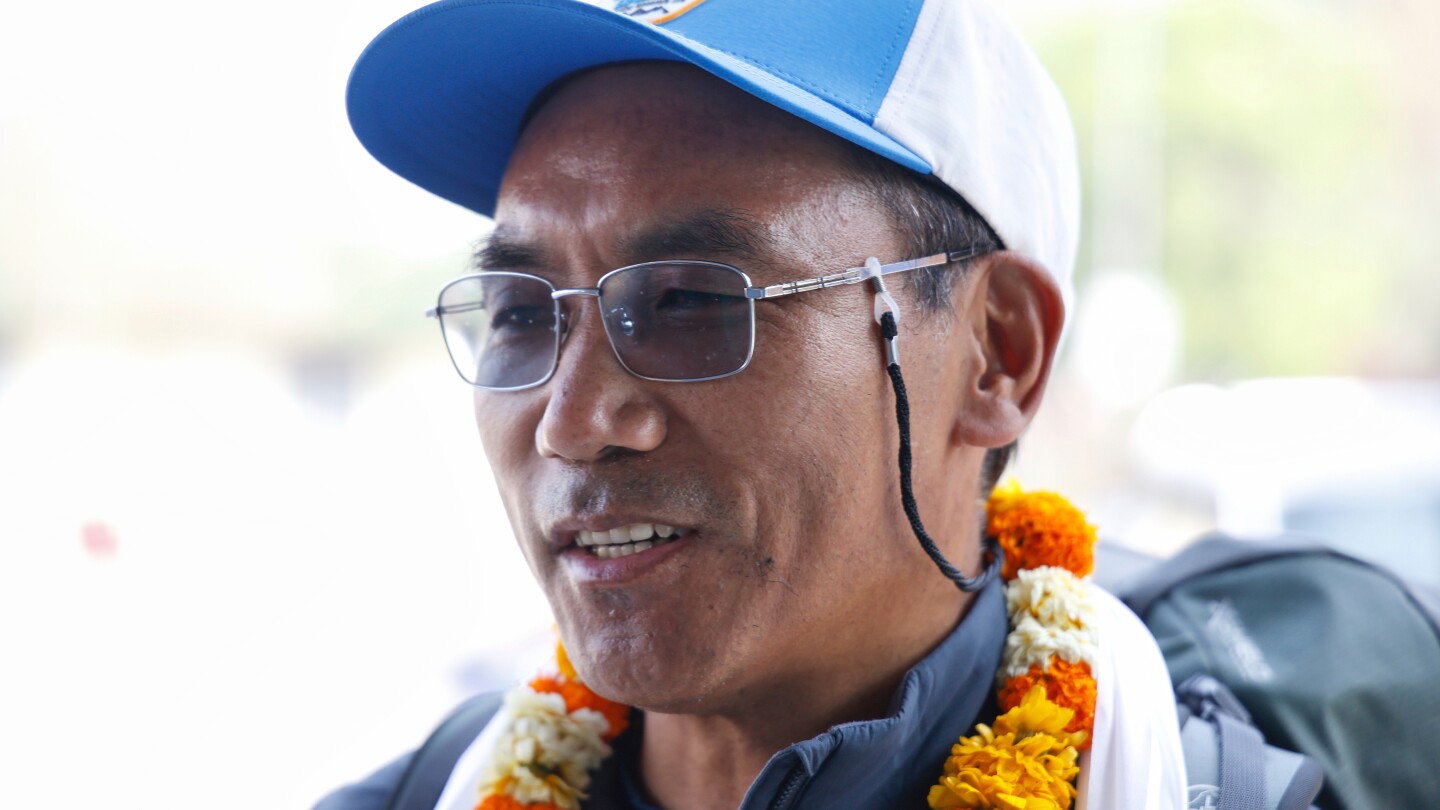
KATHMANDU, Nepal (AP) — One of the greatest mountain guides will attempt to scale the world’s highest peak for the 31st time — and possibly the 32nd time as well — and break his own record.
Kami Rita, 55, flew to Mount Everest on Sunday from Kathmandu to lead a group of climbers who will try to reach the 8,849-meter (29,032-foot) summit during the spring climbing season.
“I am mentally, emotionally and physically prepared to climb the mountain,” Kami Rita told The Associated Press at Kathmandu’s airport. “I am in my top physical condition right now.”
He holds the record for the most successful ascents of Mount Everest at 30 times. In May last year he climbed the peak twice.
“My first priority is to get my client to the summit of the peak. Then I will decide on whether I will climb the peak more than one time during the season. It depends on the weather and conditions on the mountain,” he said.
His closest competitor for the most climbs of Mount Everest is fellow Sherpa guide Pasang Dawa, who has made 27 successful ascents of the mountain.
Kami Rita first climbed Everest in 1994 and has been making the trip nearly every year since. He is one of many Sherpa guides whose expertise and skills are vital to the safety and success each year of foreign climbers aspiring to stand on top of the mountain.
His father was among the first Sherpa mountain guides. In addition to his Everest climbs, Kami Rita has scaled several other peaks that are among the world’s highest, including K2, Cho Oyu, Manaslu and Lhotse.
According to Nepal’s Department of Tourism, 214 climbers have been issued permits to attempt Mount Everest from the Nepali side of the peak in the south this climbing season, which ends in May. Most climbing of Everest and nearby Himalayan peaks is done in April and May, when weather conditions are most favorable.
Everest was first climbed in 1953 by New Zealander Edmund Hillary and Nepali Sherpa Tenzing Norgay.
-

 Education2 days ago
Education2 days agoHarvard’s battle with the Trump administration is creating a thorny financial situation
-
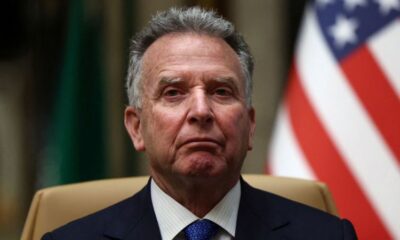
 Europe2 days ago
Europe2 days agoTrump’s ‘lone ranger’: How Steve Witkoff became the defacto point man on America’s foreign policy challenges
-
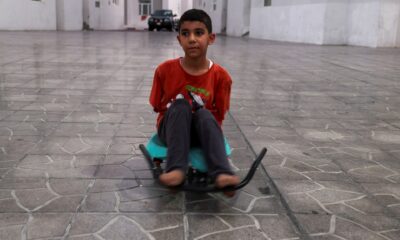
 Conflict Zones2 days ago
Conflict Zones2 days ago‘How do I live like this?’ asks Gaza boy who lost arms in Israeli attack | Gaza News
-
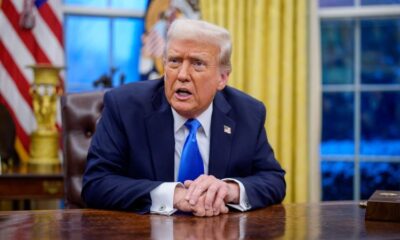
 Europe2 days ago
Europe2 days agoThe Trump administration says Europe is taking advantage of the US. That’s not exactly true
-
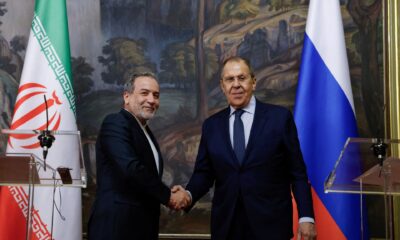
 Conflict Zones2 days ago
Conflict Zones2 days agoIran has ‘doubts’ about US intentions ahead of nuclear talks | Politics News
-

 Conflict Zones2 days ago
Conflict Zones2 days agoTrump says US may ‘pass’ on helping end war if Russia, Ukraine resist deal | Russia-Ukraine war News
-

 Middle East1 day ago
Middle East1 day agoTunisian court hands opposition figures lengthy jail terms | Human Rights News
-

 Europe1 day ago
Europe1 day agoPope Francis’ Easter is going to look a little different this year. Here’s how




